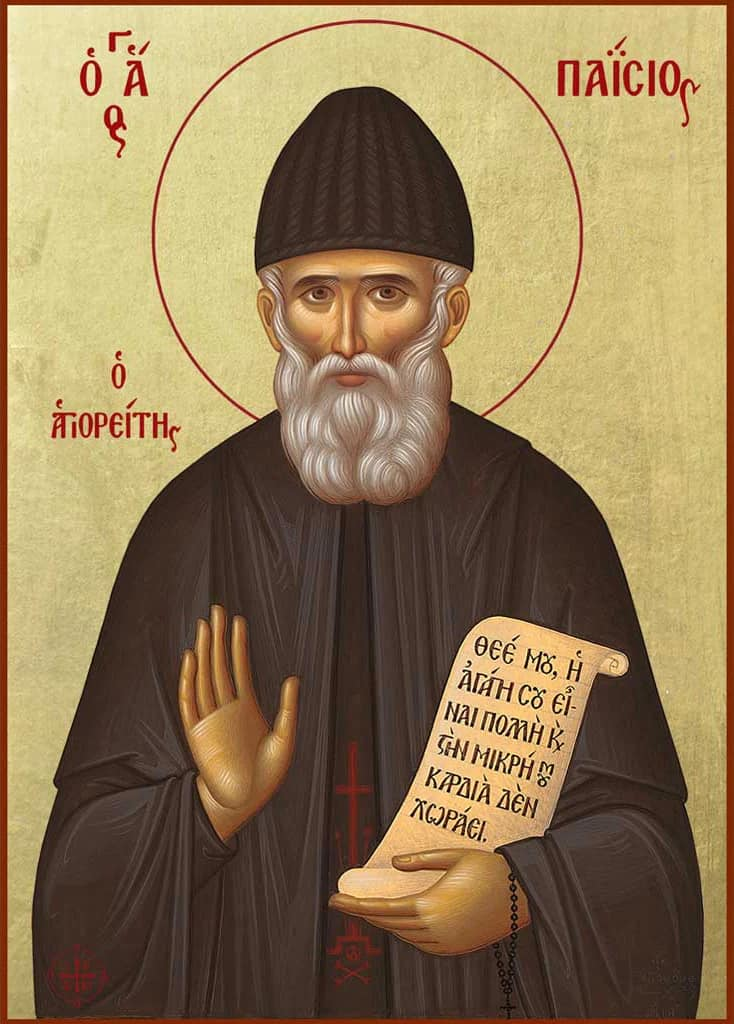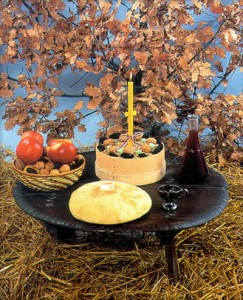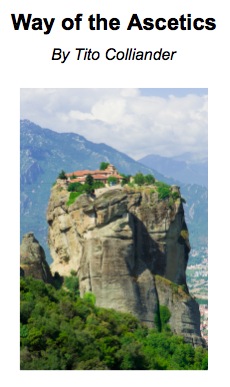
Once on Mount Athos there was a monk who lived in Karyes. He drank and got drunk every day and was the cause of scandal to the pilgrims. Eventually he died and this relieved some of the faithful who went on to tell Elder Paisios that they were delighted that this huge problem was finally solved.
Saint Paisios answered them that he knew about the death of the monk, after seeing the entire battalion of angels who came to collect his soul. The pilgrims were amazed and some protested and tried to explain to the Elder of whom they were talking about, thinking that the Elder did not understand.
Saint Paisios explained to them: “This particular monk was born in Asia Minor, shortly before the destruction by the Turks when they gathered all the boys. So as not to take him from their parents, they would take him with them to the reaping, and so he wouldn’t cry, they just put raki* into his milk in order for him to sleep. Therefore he grew up as an alcoholic. There he found an elder and said to him that he was an alcoholic. The elder told him to do prostrations and prayers every night and beg the Panagia to help him to reduce by one the glasses he drank.
After a year he managed with struggle and repentance to make the 20 glasses he drank into 19 glasses. The struggle continued over the years and he reached 2-3 glasses, with which he would still get drunk.”
The world for years saw an alcoholic monk who scandalized the pilgrims, but God saw a fighter who fought a long struggle to reduce his passion.
Without knowing what each one is trying to do what he wants to do, what right do we have to judge his effort?
- Raki is a Turkish unsweetened, anise-flavored hard alcoholic drink that is popular in Turkey, Greece, Albania, Serbia, and other Balkan countries as an apéritif.



 БОГ СЕ ЈАВИ! ВАИСТИНУ СЕ ЈАВИ!
БОГ СЕ ЈАВИ! ВАИСТИНУ СЕ ЈАВИ!

